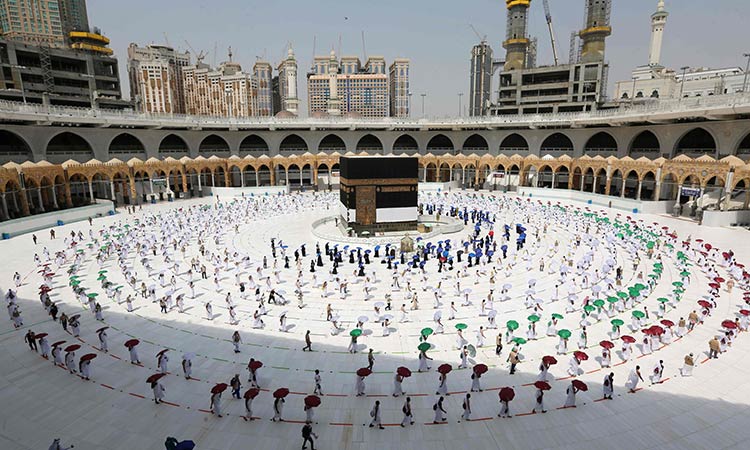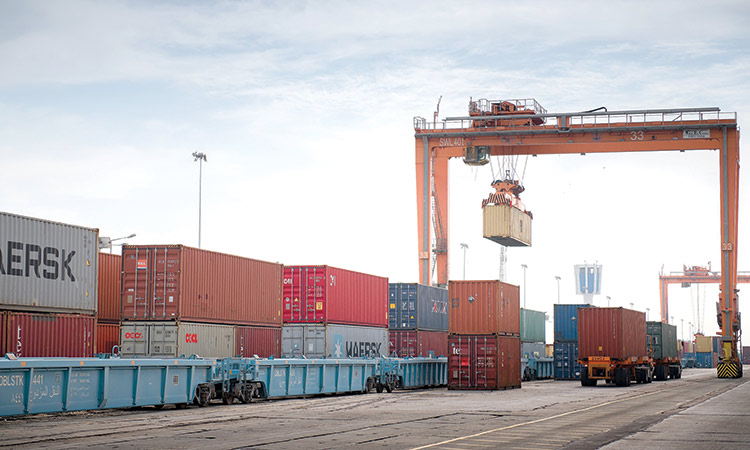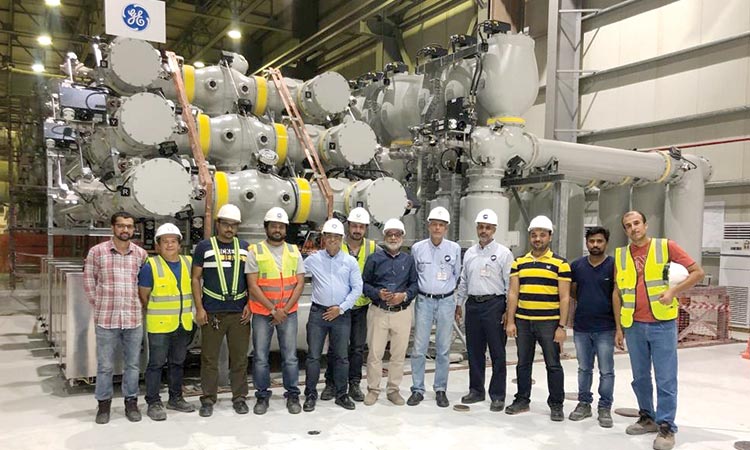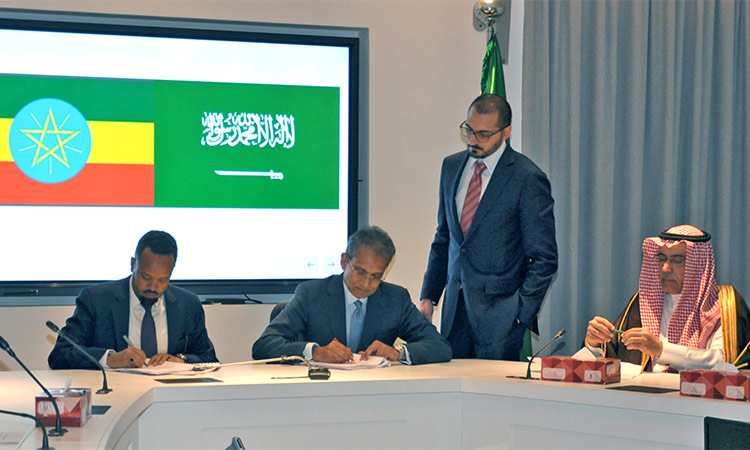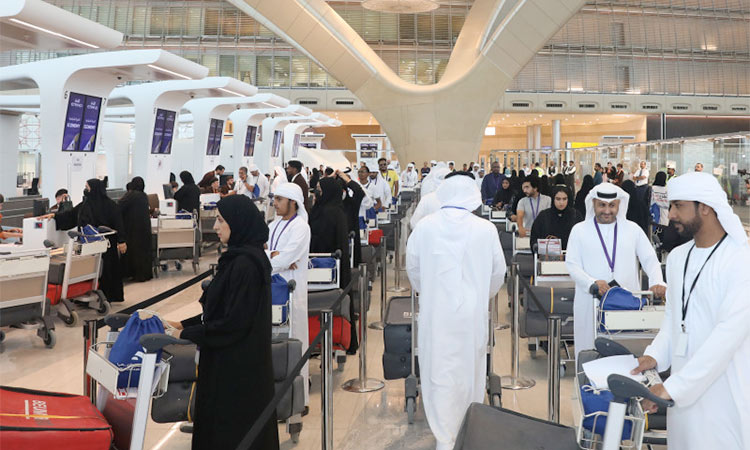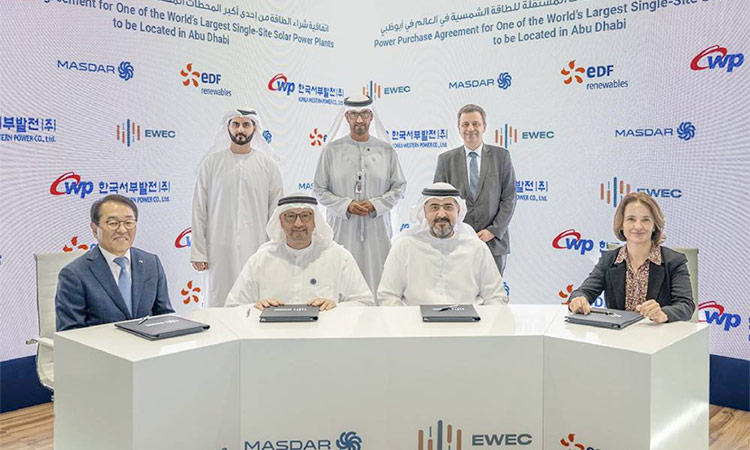Business conditions continue to improve sharply in Saudi Arabia
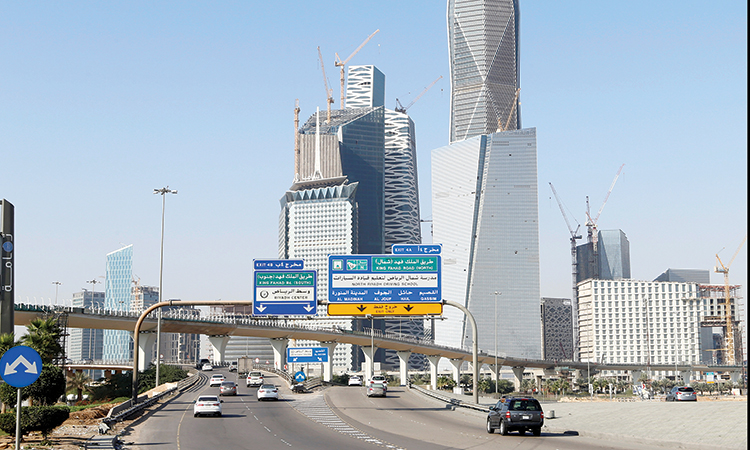
Cars drive past the King Abdullah Financial District in Riyadh, Saudi Arabia. Reuters
Business conditions continued to improve sharply across Saudi Arabia’s non-oil private sector at the end of 2023, according to the latest Riyad Bank Saudi Arabia PMI data.
New order intakes supported a rapid uplift in activity, as companies enjoyed the fastest rate of sales growth since June.
Increased demand momentum gave firms greater confidence on pricing and supported a further marked increase in purchasing activity.
Conversely, employment growth and business activity expectations slipped from November.The headline figure is the seasonally adjusted Riyad Bank Saudi Arabia Purchasing Managers’ Index (PMI).
The PMI is a weighted average of the following five indices: New Orders (30 per cent), Output (25 per cent), Employment (20 per cent), Suppliers’ Delivery Times (15 per cent) and Stocks of Purchases (10 per cent).
For the PMI calculation the Suppliers’ Delivery Times Index is inverted so that it moves in a comparable direction to the other indices.
The headline PMI registered 57.5 for the second month running in December, indicating a marked improvement in operating conditions across the non-oil economy.
The index has remained above the 50.0 no-change mark for over three years.Saudi Arabian non-oil firms continued to report a substantial uplift in activity levels during December, one that was roughly equal to November’s and common across the monitored sectors.
Businesses mainly associated an expansion in output with higher new business inflows, which increased at the sharpest rate since June.
Moreover, the pace of sales growth was also among the quickest registered in the past nine years, as firms commented on new clients and strengthening demand conditions.
Subsequently, non-oil companies bought more inputs, with the latest data signalling a marked increase in overall purchases. This supported a sharp and faster rise in stock levels than in November.
Businesses also benefitted from a substantial cut in average supplier delivery times, which was one of the sharpest recorded since the survey began 14 years ago.
Naif Al-Ghaith PhD, Chief Economist at Riyad Bank, said: “Saudi Arabia’s non-oil Purchasing Managers’ Index (PMI) for this month reached an impressive 57.5 driven by a faster increase in new orders, particularly within the manufacturing sector.
This growth was supported by a sharp rise in business activity and exports, highlighting the resilience and strength of the non-oil economy. Furthermore, the export sector experienced the fastest increase since July, driven by government initiatives and the emergence of new market opportunities.
“Notably, the increased demand and expansion of the non-oil sector have also had a positive impact on employment. With the growing need for skilled workers to meet rising demand, employment has witnessed a noticeable increase.
To attract and retain talent, wages have also seen an upward trend. This positive employment outlook reflects the success of the government’s efforts to create a diverse and robust economy, offering job opportunities and improving the standard of living for its citizens.”
“The positive performance of the non-oil sector throughout 2023 has exceeded the expansion witnessed in the previous year, further demonstrating the effectiveness of policies aimed at reducing dependence on oil revenues. These efforts have helped bolster the country’s non-oil industries and enhance their competitiveness.
The positive expansion in PMI as we near the end of the year is a promising sign for the country’s economic diversification efforts.”
On the other hand, the rate of employment growth in the non-oil private sector eased further after hitting a nine-year record in October. Despite evidence of firms hiring skilled staff to reduce workloads, the overall rise in employment was only modest.
The uplift did support a decrease in backlogs of work, albeit the softest in four months.Selling charges set by Saudi Arabian non-oil firms increased for the second month in a row in December, after a period where pricing strategies had been constrained by growing competition.
A number of firms signalled that increased demand momentum gave them greater confidence to pass on higher input costs to customers, with manufacturers leading the way in terms of both demand and selling price growth.
Nevertheless, the overall rate of charge inflation remained slower than that of input costs, with the latter staying sharp despite easing from November.
Increased material prices were largely to blame for greater expenses, although staff costs rose solidly amid some reports of additional cost-of-living payments. Finally, non-oil companies continued to signal upbeat expectations for the next 12 months.
Sales growth accelerates to a six-month high in Saud’s non-oil economy and faster increase in new orders supports sharp rise in business activity.
